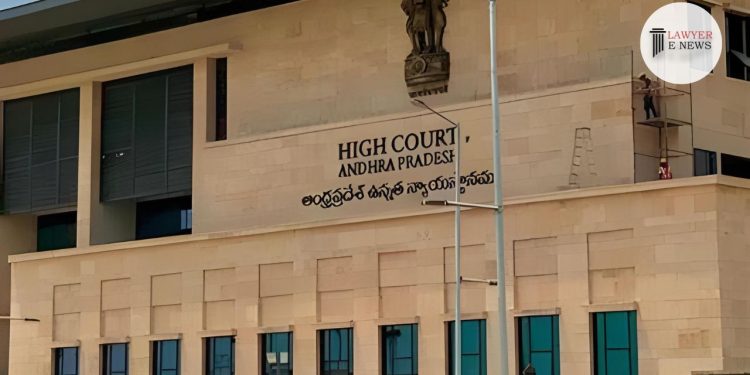The Evidence of a ‘Hostile Witness,’ If Corroborated, May Be Taken into Account While Judging the Guilt of the Accused: Andhra Pradesh High Court

High Court upholds life imprisonment in Bhoominathan’s murder, emphasizing the reliability of partial testimonies from hostile witnesses.”
The Andhra Pradesh High Court has upheld the conviction of T. Bhaskar and his accomplice in the notorious kidnapping and murder case of auto driver Bhoominathan. The bench, comprising Justices U. Durga Prasad Rao and Kiranmayee Mandava, affirmed the life sentences handed down by the trial court, underscoring the importance of medical evidence and the reliability of partial testimonies from hostile witnesses.
Bhoominathan, an auto driver from Chandrababu Nagar, Nellore, was kidnapped on March 20, 2016, while driving his auto. Witnesses reported seeing him being forcibly dragged from his vehicle by the accused, T. Bhaskar, and others. Despite a frantic search by his family, Bhoominathan’s lifeless body was discovered the following day near Sarvepalli Reservoir, with multiple injuries indicating foul play. The initial dispute between Bhoominathan’s family and the accused, stemming from previous altercations and police reports, was identified as the motive behind the crime.
The court emphasized that even hostile witnesses’ testimonies could not be entirely discarded. “The admissible portion of PW-5’s testimony, corroborated by other reliable witnesses, indicated that the appellants had kidnapped the deceased,” the bench stated. This approach ensures that valuable insights are not ignored simply because a witness turns hostile under pressure.
Addressing the issue of circumstantial evidence, the court noted, “The trial court observed no undue delay in lodging the FIR and found the evidence regarding the kidnapping and subsequent murder of the deceased credible.” The court maintained that the timeline and consistency in the evidence presented were sufficient to uphold the conviction, despite partial hostility from key witnesses.
The High Court reiterated the principle that once the kidnapping is proved, and the deceased is found dead, the burden shifts to the accused to explain the cause of death. The court concluded that the appellants failed to provide any satisfactory explanation, thereby sustaining the conviction under Sections 302, 364, and 201 IPC. “The conviction under Sections 302, 364, and 201 IPC was upheld based on the evidence and the failure of the accused to rebut the prosecution’s case,” the court stated.
The trial court’s judgment was primarily based on the testimony of PW-5, who initially informed the victim’s family about the kidnapping but later turned hostile. Despite this, the High Court noted that the admissible portion of his testimony, combined with other reliable evidence, was sufficient to establish the facts of the case. Additionally, the medical evidence corroborated the nature of the injuries reported by the witnesses, which supported the prosecution’s narrative.
Justice U. Durga Prasad Rao remarked, “The fact that a witness has been declared ‘hostile’ does not result in an automatic rejection of his evidence. Even the evidence of a ‘hostile witness,’ if it finds corroboration from the facts of the case, may be taken into account while judging the guilt of the accused.”
The High Court’s dismissal of the appeal underscores the judiciary’s commitment to ensuring justice, particularly in heinous crimes involving kidnapping and murder. By affirming the lower court’s findings, the judgment reinforces the reliability of medical evidence and partial testimonies from hostile witnesses. This decision is expected to influence future cases, providing a robust framework for addressing crimes with similar complexities.
Date of Decision: June 19, 2024
Bhaskar and Others vs. State of Andhra Pradesh






